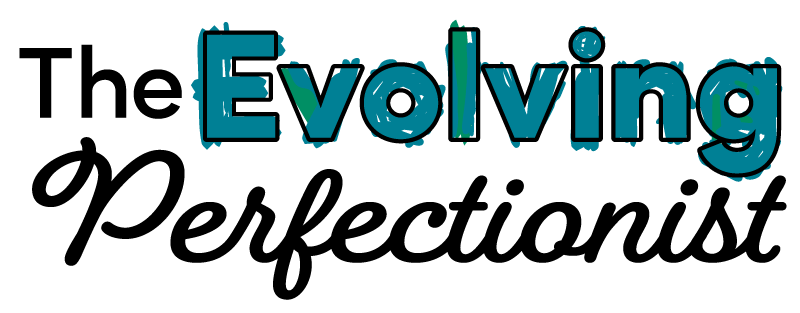Day 38: Self-Acceptance
#Evolving40 Day 38: Self-Acceptance
I have a very active inner critic who constantly narrates my mistakes and shortcomings: “Why did you say that? That was so awkward! Ugh, you get so anxious about everything. And how are you this absentminded? What is WRONG with you?”
With this kind of internal daily abuse over multiple decades, it’s no surprise that I’ve struggled with self-loathing and worthlessness. Starting in high school, these feelings drew me to psychology and personal development (“self-help” seems so pejorative ), because I was fascinated by human behavior and wanted to do better and be better.
Believing there was something fundamentally wrong with me, I started out searching for ways to fix myself. Only recently have I realized that I don’t actually need fixing. The purest expression of myself is just buried under layers of cultural conditioning, plus the delusions and attachments of the ego.
As I’ve been working on stripping those away, I can feel my real self emerging, the one I'm surprised to actually like, the person I’m honestly proud to be. I’m learning to become friends with myself, to treat myself like I would a friend: with kindness, respect, love, and compassion.
A few things have helped me evolve in learning self-acceptance:
1) Therapy. I’ve come to see how my Self is made up of parts, a cast of characters that includes (among others) the Perfectionist, the Nurturer, the Artist, and the Lover of Life. These parts can come into conflict and fall out of balance, and it’s up to my wiser Self to access the most helpful part for a given situation. When my child makes a mistake, for example, I can call on the Nurturer, but the Perfectionist is more helpful for editing a client's press release. All parts have value; there are no bad parts, only parts with jobs to do. (As I've mentioned, the movie "Inside Out" illustrates this brilliantly.)
2) Medication. Even though I’ve struggled with anxiety and depression since high school, I resisted meds for years because I wanted to “heal myself naturally.” I didn’t want to rely on a substance to feel like myself or be addicted to anything. I cried when I finally started antidepressants because it felt like I’d failed to succeed on my own.
I know now that this is 100 percent untrue. The reality is that my brain doesn’t produce as much serotonin as a neurotypical brain, and just like a diabetic who needs insulin, I need medication for my vital organs to function properly. There is no room for shaming and stigma around this, period. Taking the right medication means I don’t spiral into self-loathing and can see myself and the world around me more clearly. In “Untamed," Glennon Doyle writes beautifully about her overwhelming gratitude for her meds and cracks me up with her song of praise: “Jesus loves me, this I know, for he gave me Lexapro.”
3) Choosing people for my inner circle who love me not only in spite of my imperfections, but because of them. Darren says these qualities are “quirks, not flaws,” and that’s helped me see them that way, too. I used to feel like there was something wrong with me when people acted annoyed by my high sensitivity. Now I realize now that those people are not my people (another Glennon pearl of wisdom), and that’s okay.
4) Talking and writing openly about my vulnerabilities. As Elizabeth Gilbert has said, “I think that the more honest I am about my journey, the more connected I feel to everybody and their journeys. The more I reveal that seems really vulnerable and really private, the less private it becomes, because all I hear is a chorus of voices saying, ‘me too, me too.’” Reflecting on all this publicly has helped me share it from a place of strength and realize that I am a beautifully imperfect member of the human family, just like the rest of us.
5) Practicing self-compassion and self-forgiveness over and over again. When I get nervous speaking to a group of people, when I overthink something small, or when I yell at the kids, I think about the kind and encouraging things I’d say to a friend in that situation. Then I say those things to myself, remembering Brené Brown’s advice: “Talk to yourself like you would someone you love.”
I still work on myself every day, but instead of trying to fix or fundamentally change myself, I’m working on becoming MORE myself, the most honest and authentic version at my core.
* How I’ve evolved: Being more self-compassionate for making mistakes and missing opportunities, because I’m always doing the best I can within my current circumstances.
* How I’m evolving: Learning to accept my high sensitivity and intensity as powering my creative life. After all, the artists and activists I admire are a bit extra, too; they channel that energy into being a force for good in the world.
Links:
- "The Self-Acceptance Project: How to Be Kind and Compassionate Toward Yourself in Any Situation" https://www.soundstrue.com/products/the-self-acceptance-project
- "The Science of Inside Out," NY Times: https://www.nytimes.com/2015/07/05/opinion/sunday/the-science-of-inside-out.html
- Marie Kondo Interviews Elizabeth Gilbert on Tidying the Mind: https://konmari.com/marie-kondo-interviews-elizabeth-gilbert/
- “Untamed,” by Glennon Doyle: https://www.penguinrandomhouse.com/books/592473/untamed-by-glennon-doyle/
- “Brave, Not Perfect,” by Reshma Saujani: https://www.bravenotperfect.com/
- “The Gifts of Imperfection,” by Brené Brown: https://www.simonandschuster.com/books/The-Gifts-of-Imperfection/Brene-Brown/9781592858491
- “The Gifts of Imperfect Parenting,” by Brené Brown: https://www.soundstrue.com/products/the-gifts-of-imperfect-parenting
--
You’re welcome to join me anytime for The Evolving 40. On the daily theme, think: “How have I evolved? How am I evolving?”
Post in the comments below or on your own social with the hashtag #evolving40. Whatever comes up is what’s meant to be.

